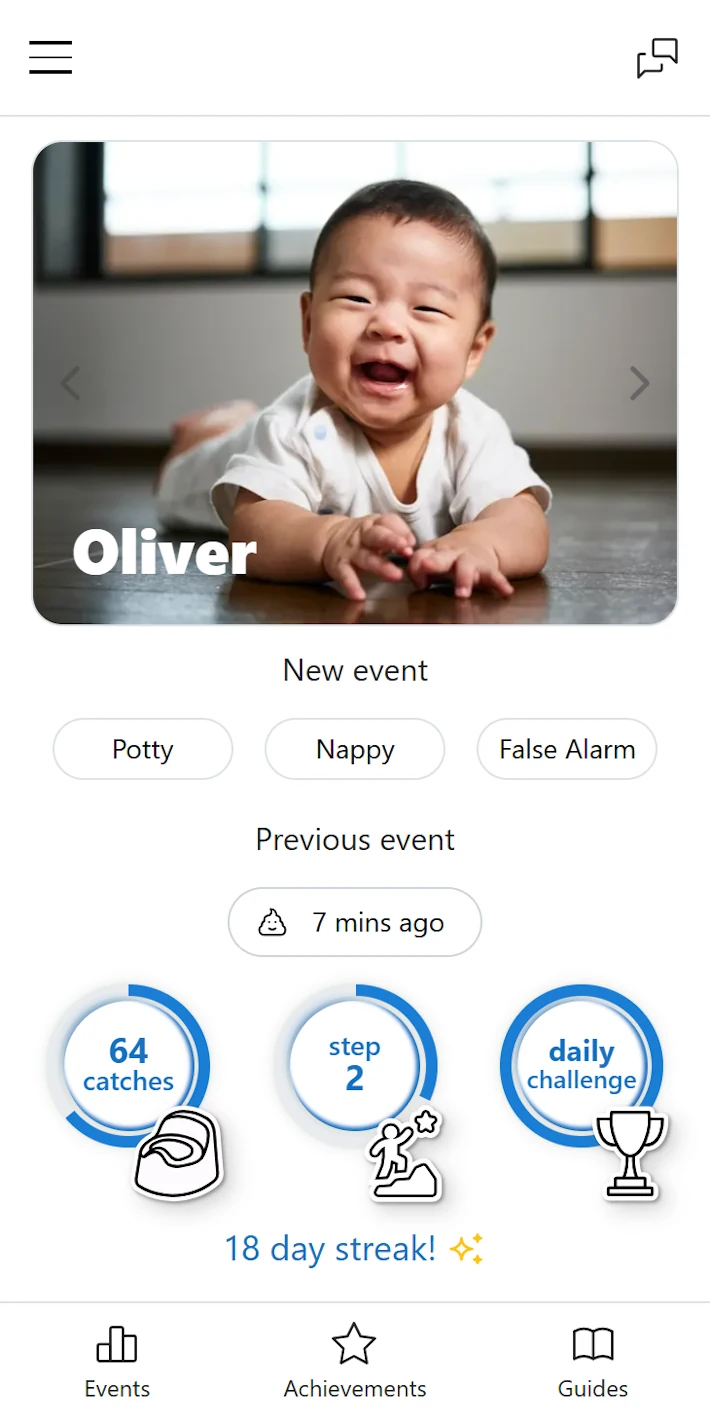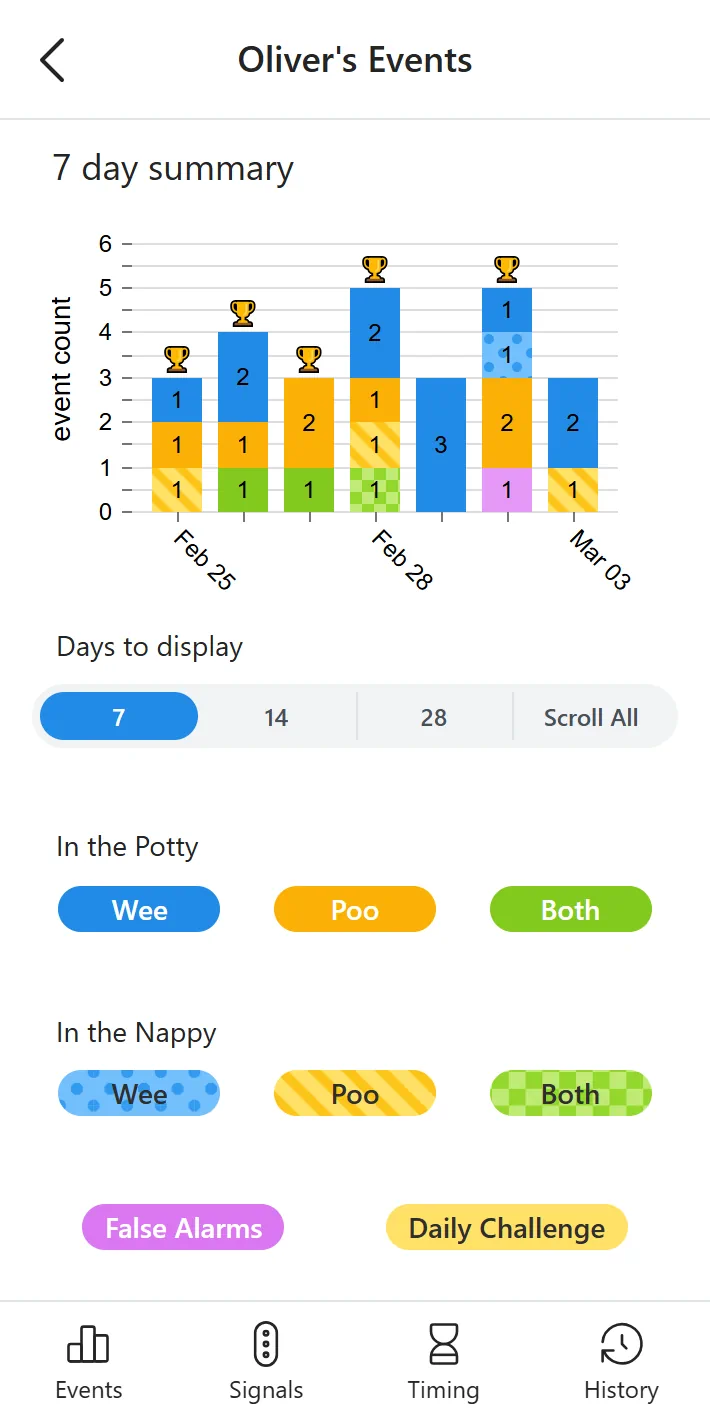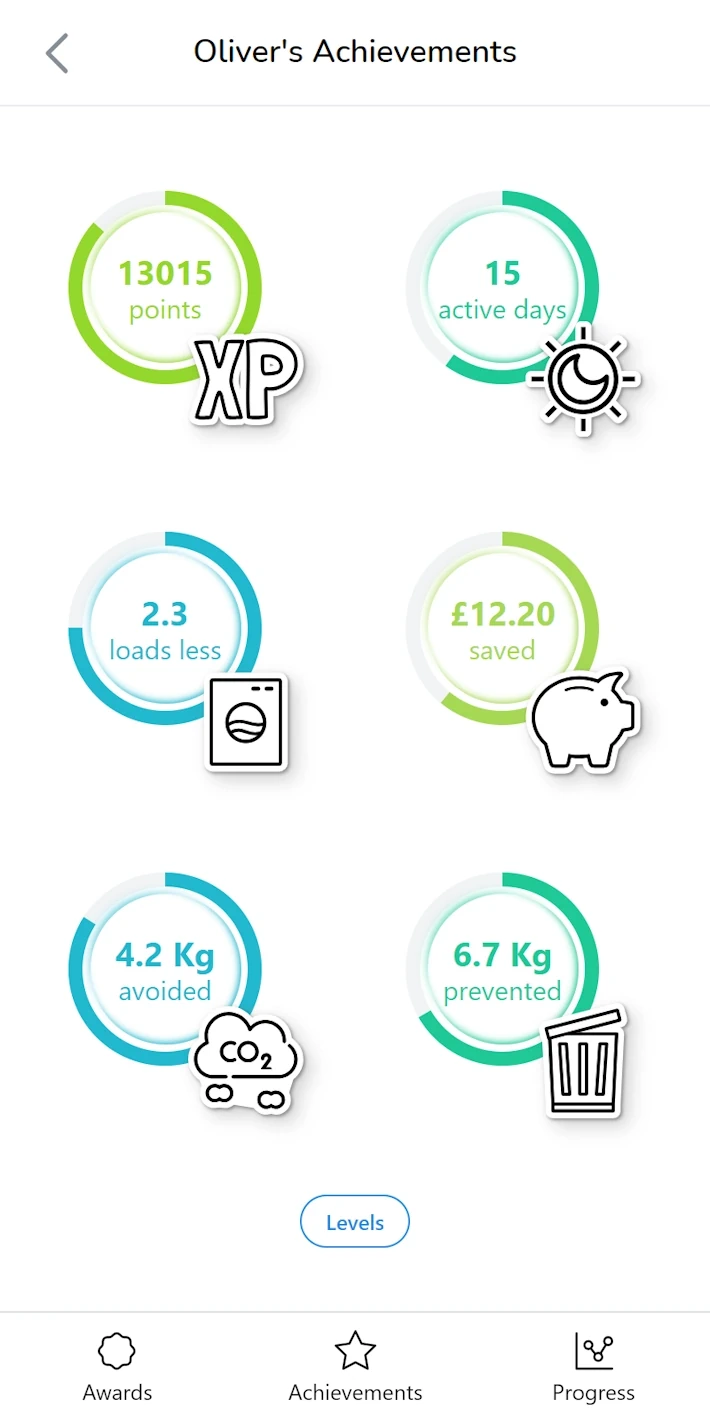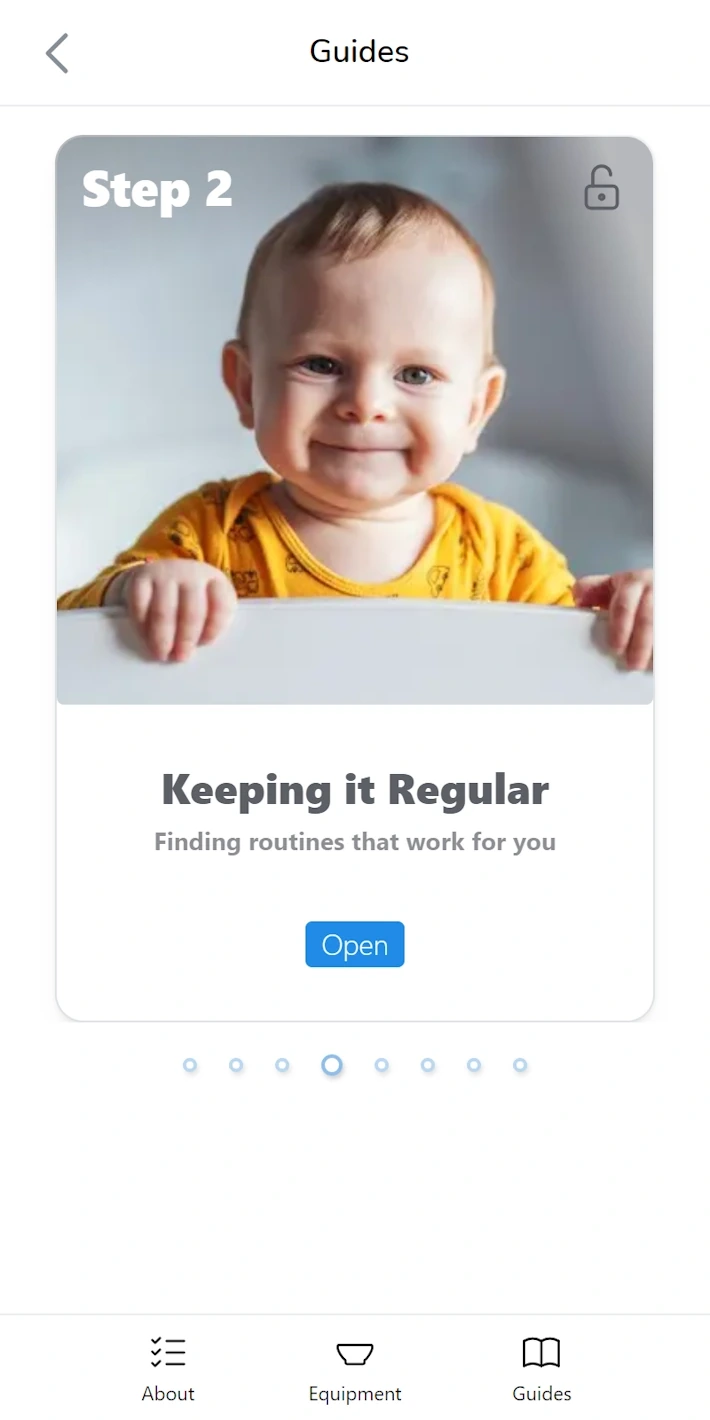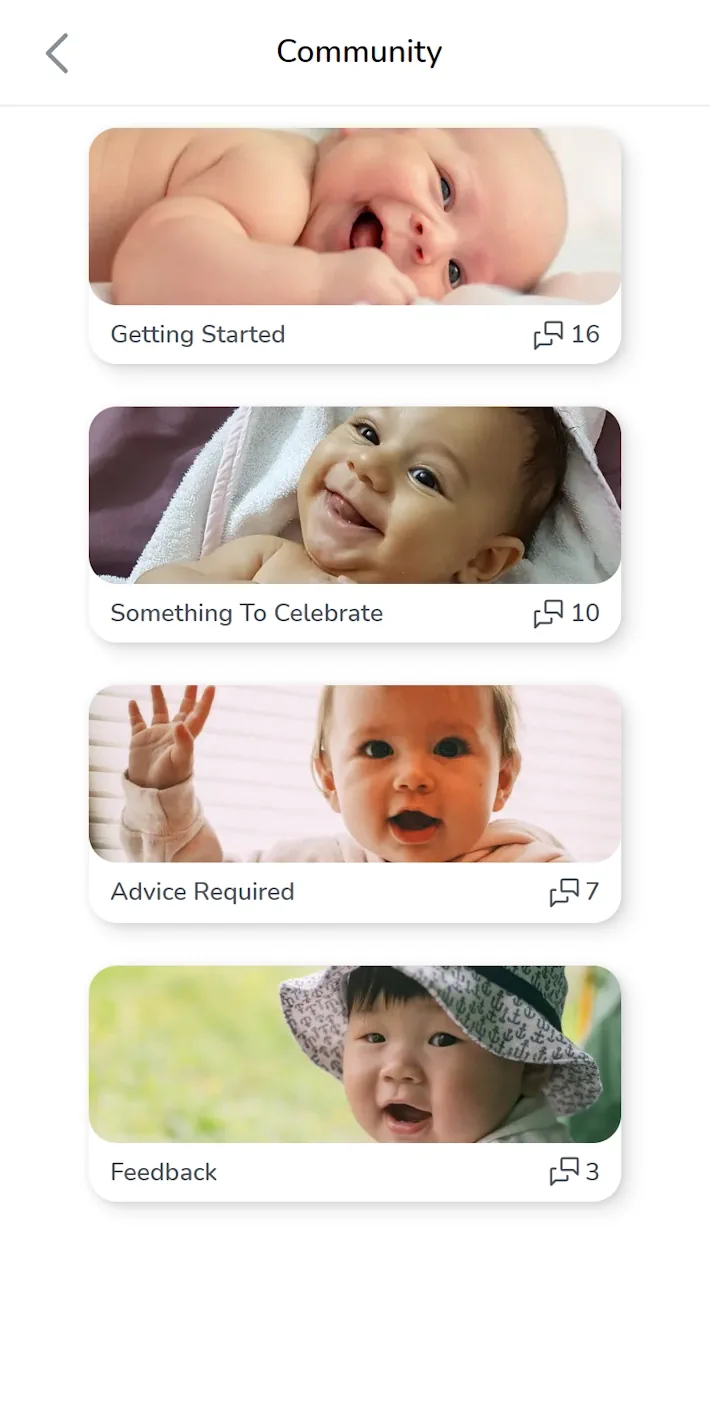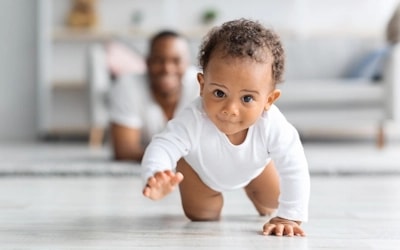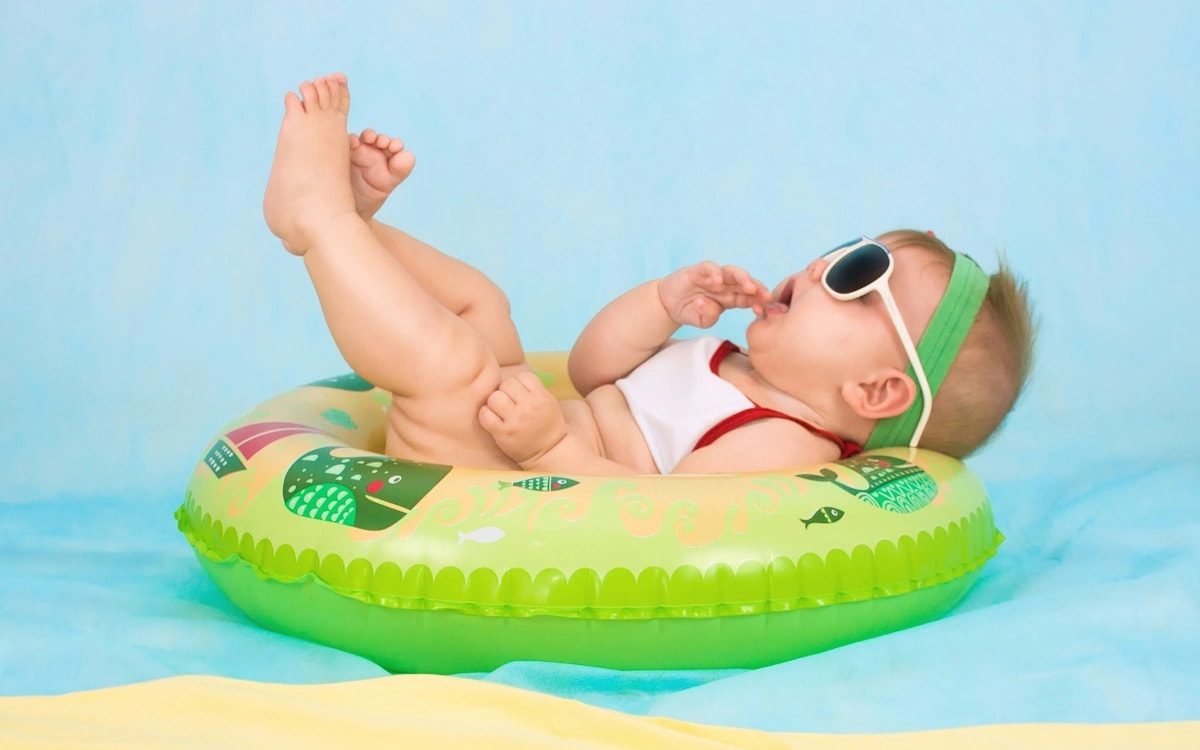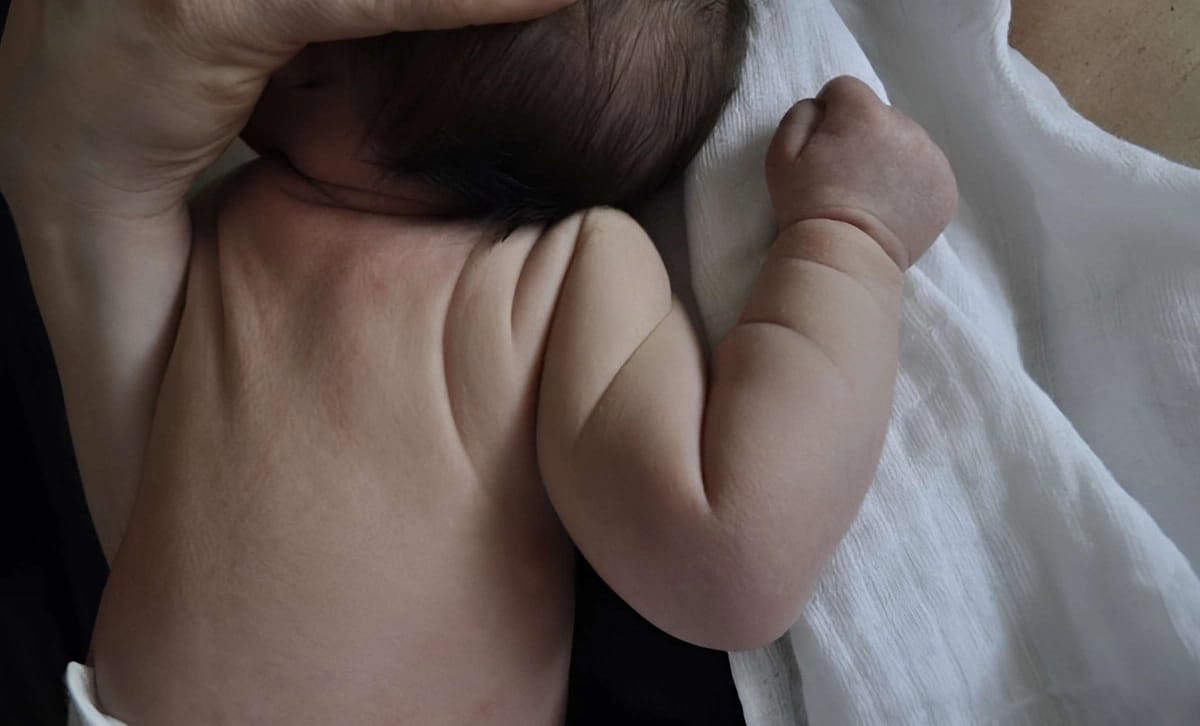
The EC App
Guides, progress and community
The ec babies' app is home to a set of guides to help you get started and grow in confidence with EC.
It's also used to create child profiles and record events.
Events are a baby's toileting actions; a few clicks capture enough information to measure current progress and set goals.
Additional carers can be added to a child's profile. They can get involved with EC and record events that happen while your baby is in their care.
Everyone is welcome in the community area; it's a place to share experiences and support each other.
How ec babies Works
Combine observation, timing, and assistance to help your baby learn to communicate their toileting needs.
Follow a Structured Program
Record & Learn on the Go
Gain Insights
Stay Motivated
Enjoy the Process
Pathways
Classic, Signing, or Casual?
Before babies can talk, they're very good at finding other ways to get our attention and tell us things.
With regular EC it's quite common for babies to develop gestures as a way of letting you know when they need to go.
As a parent you can wait for your baby to develop their own gestures, or encourage them to use specific ones.
ec babies supports three pathways; for gesture encouragement, the classic and signing pathways, or you can choose to follow a more casual approach.
Step by step
A structured method inspired by how babies learn
The ec babies program builds on a step based method described in the study Shaping self-initiated toileting in infants.
The ideal time to begin is between birth and nine months. During this period babies learn in a unique way, they begin to construct mental models based on the sensations they feel, experiences they have, and the sequences in which events happen.
Starting later might be challenging because most babies will have begun to expect a routine around relieving themselves into a nappy and receiving a change afterwards.
That said, many parents who begin using EC with babies aged between 9 and 12 months still find success with it!
Drop us a line if you have any questions.
P
1
2
3
4
5
Success and impact
cleaner nappies, and more...
Whatever your motivation, you'll find a counter to illustrate achievements and inspire progress.
Selected: Co2 avoided
1.0 Kg
avoided
What's included?
Features and benefits you'll experience with ec babies.
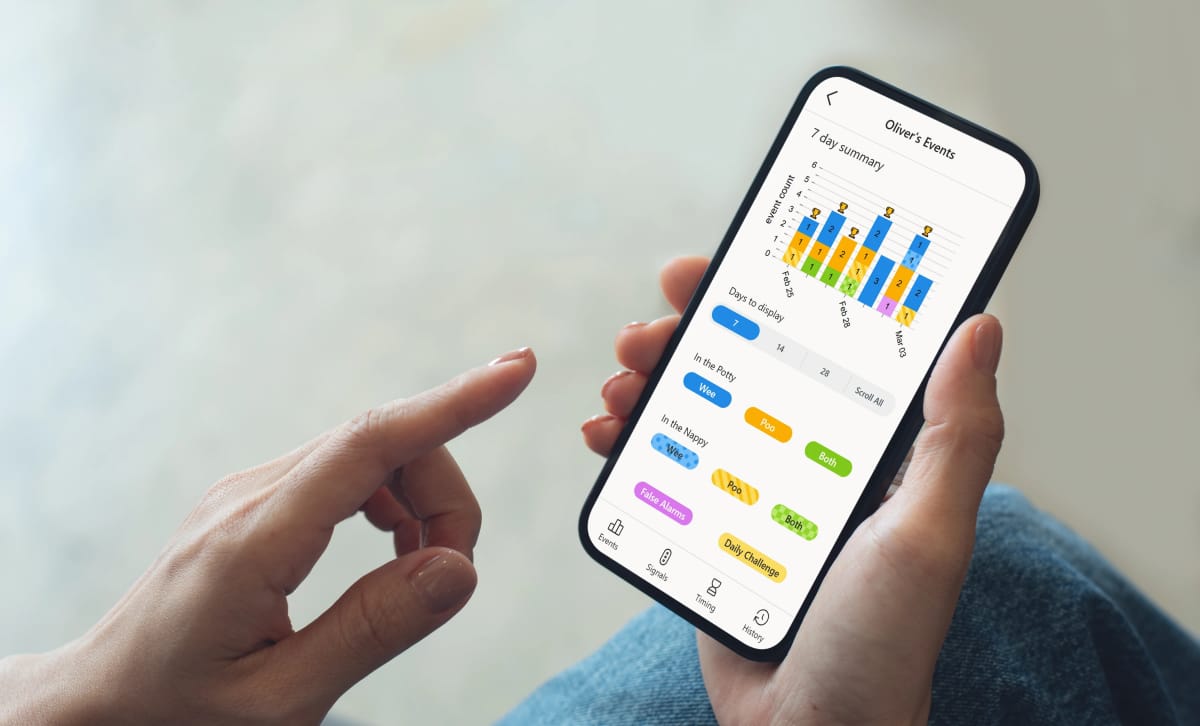
Frequently asked questions

 Get the app
Get the app